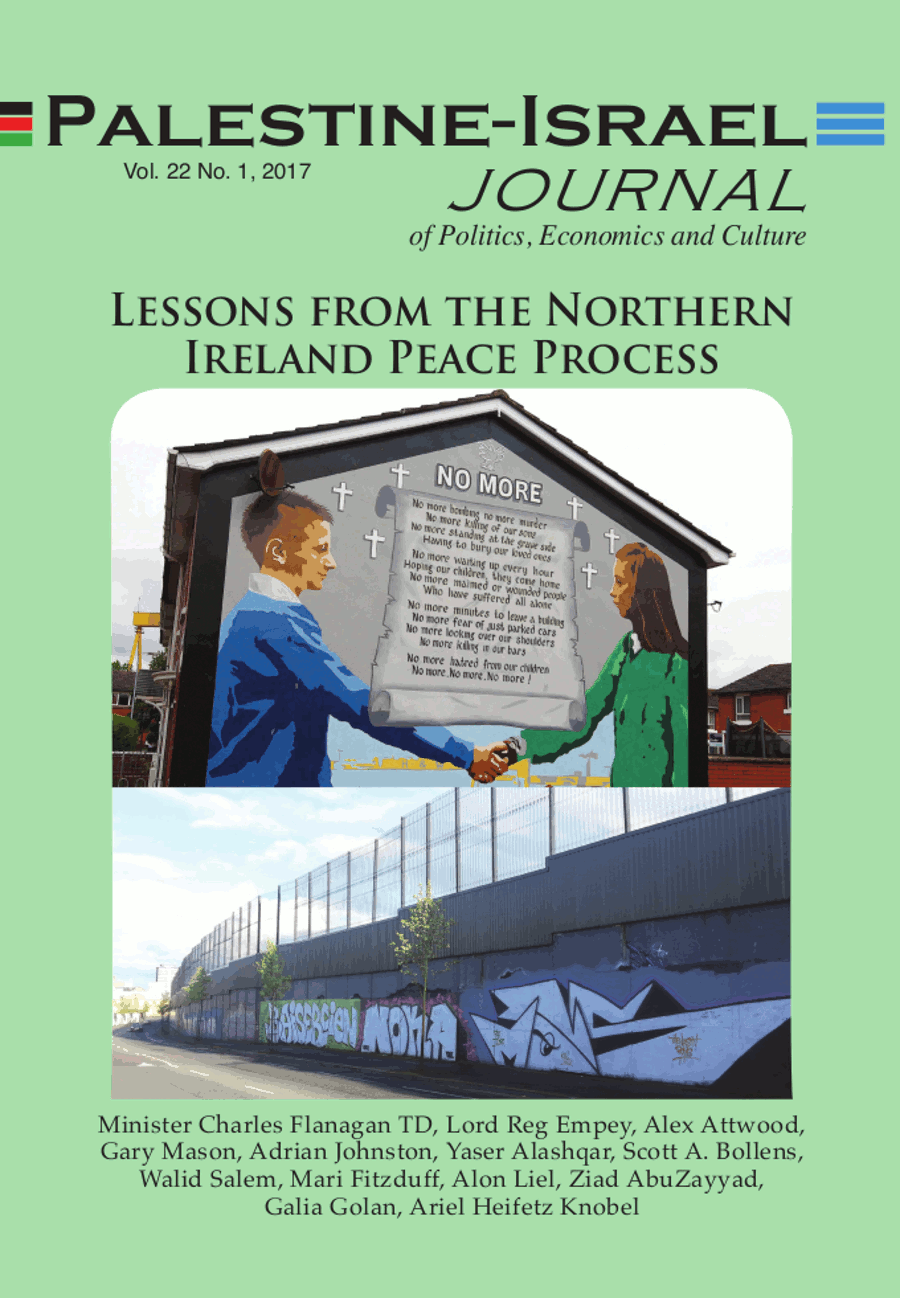The Palestinian-Israeli conflict is one of the oldest conflicts in the world, if not the oldest. It did not start in 1967 or 1948 but many decades before. Right from the beginning of the 20th century, the Palestinians were suspicious of the waves of Jewish immigrants coming to Palestine, and these suspicions and fears were expressed in violence and armed confrontation.
Disturbances in Mandatory Palestine started right after the end of World War I and witnessed an escalation towards the end of the 1920s through the 1930s and the 1940s until the 1948 War broke out and the state of Israel was created on 78% of Mandatory Palestine between the Mediterranean Sea and the Green Line, the 1949 armistice line now known as the 1967 borders. The West Bank of the River Jordan, including East Jerusalem, was annexed to Jordan, while Egypt did not annex the Gaza Strip but kept it as a separate unit under military administration.
The four Arab countries neighboring Israel were formally in a state of war with Israel, but with almost no friction or military activities between them, except minor occasional ceasefire violations on the armistice line between Israel and Syria mainly near the Sea of Galilee. .All parties respected the ceasefire from 1949 to 1967. And there were no signs of serious belligerent activities until tensions ran high suddenly in May 1967, which led to the war of June 1967 and the Israeli occupation of the remaining parts of Mandatory Palestine, namely, East Jerusalem, the West Bank and the Gaza Strip.
The occupation of all of Palestine did not put an end to the conflict. On the contrary, it contributed to the deepening of the Palestinian public’s commitment to its national identity and enhanced their struggle against the Israeli occupation. Over time, the Palestinian national movement adopted a strategy of accepting Israel based upon the 1967 lines, opting for a twostate solution, while demanding an independent Palestinian state in the West Bank and the Gaza Strip, with East Jerusalem as its capital, alongside the state of Israel, and a fair solution to the refugee problem.
The current deadlock and deterioration in the situation and the growing pessimism among both Israelis and Palestinians have raised serious questions about the need for new strategies that can effectively help to break the impasse and revive a genuine peace process. Such strategies include learning from other peoples’ experience in resolving their conflicts. The Irish peace process inspired thinking in this direction.
Israel’s settlement policy is undermining this possibility and causing anxiety within internal and many international circles that it is eliminating the two-state option, converting the conflict into an irresolvable one that will lead to further violence and bloodshed in the years to come. This was recently emphasized by United Nations Security Council Resolution 2334 and the policy speech by outgoing U.S. Secretary of State John Kerry on December 28, 2016.The element of settlers and settlements is seen by some observers as a parallel element in both the Palestinian-Israeli conflict and the Irish-British conflict. However, the international involvement in the efforts to resolve the conflict in Northern Ireland, which led to the signing of the Good Friday Agreement in 1998, succeeded in Ireland, but has not in Israel/Palestine.
This fact led us at the Palestine-Israel Journal to decide to publish a special issue examining the Northern Ireland peace process from all aspects, looking for possible lessons to be learned from it that could be relevant for Palestinian-Israeli conflict resolution. This idea required a study tour in which we visited Dublin and met many people who were involved in the Irish peace process or are experts in it. We also visited Belfast to see on the ground the outcome of the peace process, while meeting representatives from across Northern Ireland’s political spectrum and a good number of civil society organizations active in the field of conciliation, rehabilitation of ex-prisoners and monitoring of the implementation of the Good Friday Agreement.
The Irish Embassy in Tel Aviv and the Irish Foreign Ministry and Trade in Dublin sponsored the visit and funded this special issue of the Palestine-Israel Journal, which focuses on Lessons to Be Learned from the Northern Ireland Peace Process. A good number of Israeli, Palestinian, international and Irish academics and experts contributed articles to this issue or were involved in its preparations, which helped us to produce an excellent issue which can serve as an important reference tool for all those who are interested in learning about the two conflicts. Our conclusion is that there are many similarities between the two conflicts and many lessons to be learned.

